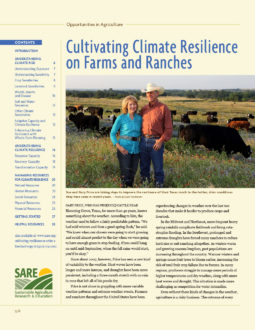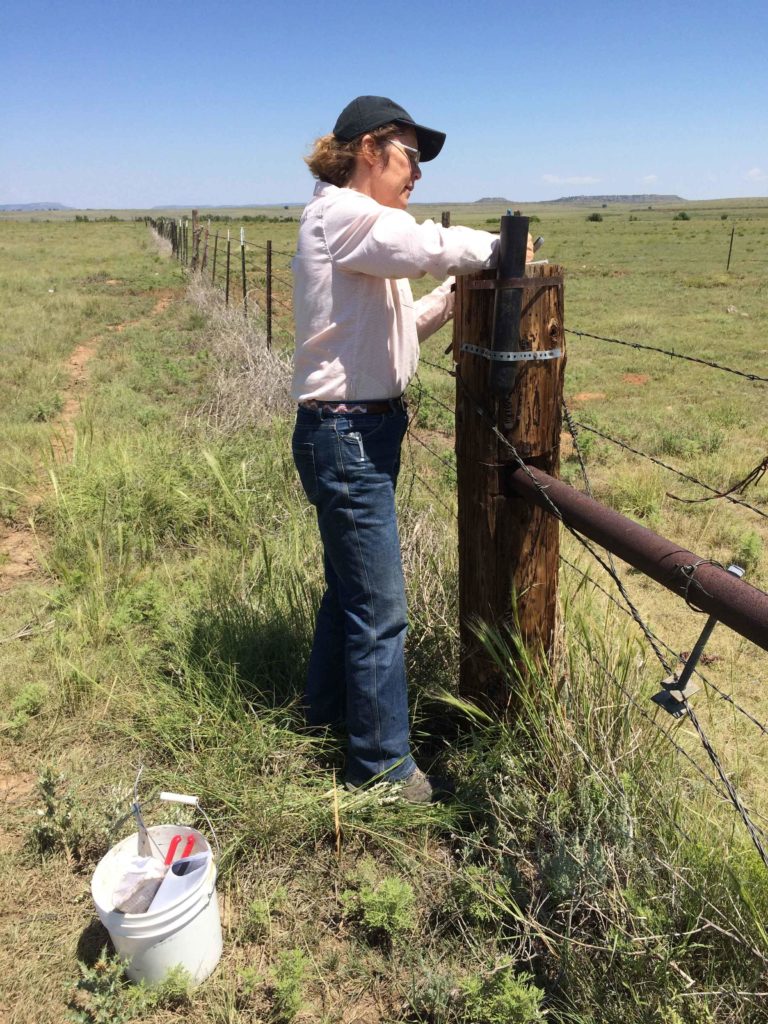Managing a farm or ranch to enhance adaptive capacity, or resilience, is admittedly complex. It requires thinking through your production system in terms of component parts and how the relationships between the parts contribute to the climate resilience of the whole operation. It requires making strategic management decisions that take into account many factors, some relatively simple and stable, and many others that are complex or can change rapidly. When faced with such challenging conditions, adaptive management has proven to be a useful tool.
One form of adaptive management that farmers and ranchers can use is whole-farm planning. Producers who have adopted whole-farm planning feel more confident in their management decisions and report improved profitability, enhanced quality of life and increased natural resource quality on their farms and ranches.
A key strategy in whole-farm planning is to regularly monitor production system conditions in order to evaluate and modify management actions to meet sustainability and resilience goals.
Mark Frasier, owner and manager of Frasier Farms in Woodrow, Colo., draws on many resources to manage the challenges of weather variability and extremes. He believes the use of adaptive management strategies has proven vital to his success. Focusing on the key word, “variability,” Frasier said: “You’ve got to have adaptive management to respond, both in terms of knowing how to respond and also to anticipate what a change will bring.”
When warming winters and a lengthening growing season promoted an increase in parasite populations on his farm, recall that Jim Hayes began monitoring parasite loads in his sheep using FAMACHA. This information helped him conclude that his switch to mob grazing resulted in fewer parasite problems.
Although whole-farm planning can be an effective farm management tool, it has not been widely used. Many producers say the record-keeping required for effective monitoring is a barrier to adopting the management strategy; however, in recent years, new record-keeping tools that use smartphones and other digital technologies have made record-keeping easier, and whole-farm planning is a key feature of many beginning-farmer training programs. Adaptive management strategies like whole-farm planning are likely to become more important as climate risk adds increasing uncertainties and complexities to the challenges of managing agricultural businesses.
Whole-Farm Planning with Holistic Management
Holistic management is a whole-farm planning strategy that uses an ecosystem-based framework for the management of agricultural businesses. Developed by Allan Savory for the ecological management of South African grazing lands, it has developed into a planning strategy for the sustainable management of farms, ranches and conservation lands worldwide.
Holistic managers look at the “whole” of their operation and seek to understand the relationships between finances, the land and the people who work it. They set personal and business goals that describe their desired quality of life, the kinds of production needed to support that quality of life, and the natural and social resources needed to sustain that production over time. Holistic managers monitor progress towards these goals with performance measures that help them to “learn as they go” and make management adjustments as needed to stay on course towards their goals. Holistic managers have the benefit of some unique practices, including the three-part holistic goal, planning for profit, testing questions that guide sustainable decision-making and regular monitoring of personal, business and natural resource health and well-being.
Although holistic management is more commonly used on ranches and conservation lands in the western United States, new holistic management tools for crop producers have recently become available. Learn more at https://holisticmanagement.org.

